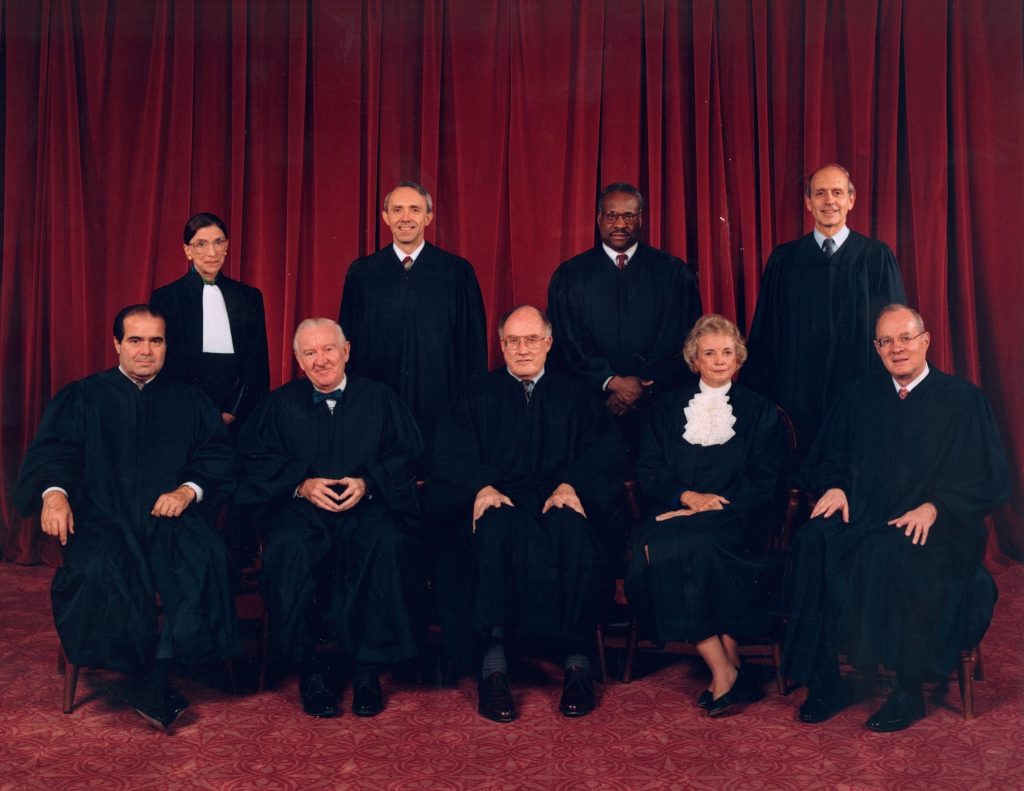
The Great Seal of the State of Nevada

The Rehnquist Court (1994-2005). Seated, from left to right: Antonin Scalia and John Paul Stevens, Chief Justice William H. Rehnquist, and Justices Sandra Day O'Connor and Anthony M. Kennedy. Standing, from left to right: Ruth Bader Ginsburg, David H. Souter, Clarence Thomas, and Stephen G. Breyer.

In Nevada Department of Human Resources v. Hibbs (2003), the Court found that Congress could abrogate a state’s sovereign immunity for purpose of the Family Medical Leave Act, or FMLA.

Justice Kennedy dissented. He found that with FMLA “Congress was not responding with a congruent and proportional remedy to a perceived course of unconstitutional conduct. Instead, it enacted a substantive entitlement program of its own.”
Over the prior decade, Chief Justice Rehnquist had consistently declared unconstitutional federal waivers of state sovereign immunity. But in Nevada Department of Human Resources v. Hibbs (2003) he found that Congress could abrogate a state’s sovereign immunity to remedy violations of the Family Medical Leave Act (FMLA). This law allowed “eligible employees to take up to 12 work weeks of unpaid leave annually.” Employers that denied that benefit — including state government agencies — could be sued in federal court for damages. In this case, William Hibbs sued the Nevada Department of Human Resources for violating FMLA.
By a 6-3 vote, the Supreme Court found that FMLA’s waiver of sovereign immunity was constitutional.